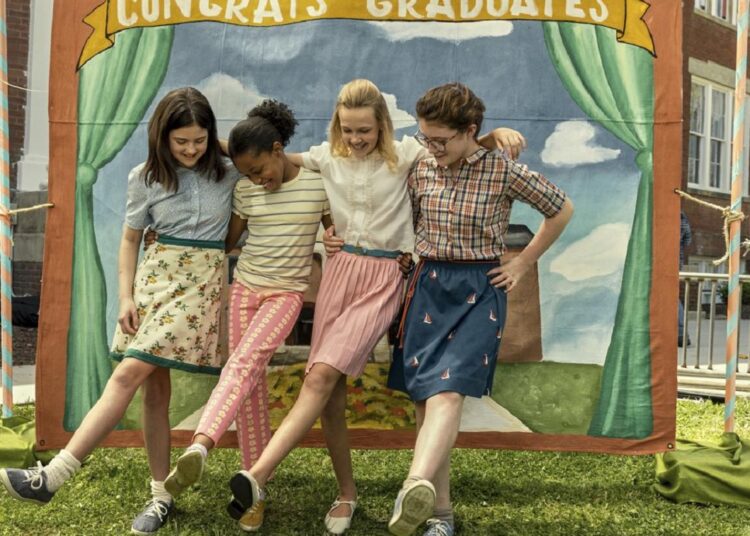WASHINGTON — There is not a cynical molecule in the big-screen adaptation of “Are You There God? It’s Me, Margaret,” a sweet, playful and reverential adaptation of Judy Blume’s famed coming-of-age novel about the everyday problems of an 11-year-old girl.
Perhaps it shouldn’t have been earthshattering for someone to write frankly about puberty for an audience who was going through it, but it was and, in many ways, still is.
In one scene, Margaret (Abby Ryder Fortson), who has not yet started menstruating, decides to get ready for it by buying some pads at the convenience store with her friend Janie (Amari Alexis Price).
The two girls watch in horror as the older woman at the checkout counter leaves for a break right as they approach and is replaced with a shaggy-haired teenage boy. In a panic, Margaret throws a pack of mints on the boxes.
Writer-director Kelly Fremon Craig (“The Edge of Seventeen”) relishes in the excruciating awkwardness, letting time slow down as the conveyer belt screeches along.
It’s one of many lovely moments that evoke the strangeness of being 11. Not only are you dealing with the normal pains of everyday existence and coming to terms with the fact that your parents just might be people too — you and all of your classmates are morphing at wildly different and confusing rates. In one of the too-few shots illustrating Margaret’s literal point of view, the camera moves in to gaze at the armpit hair of a local boy, Moose.
The craziest thing about “Are You There God? It’s Me, Margaret,” which opens in theaters Friday, is that it took Blume this long — over 50 years — to let Hollywood do it, at least officially.
There have been decades of films and series and books that have been created in the image of Blume and her perfectly imperfect young heroine, who may technically be stuck in 1970, but whose problems — faith, crushes, friends, bodies, parents — are evergreen.
This familiarity is both strength and a weakness of the film. There is a wistful comfort to watching this turbulent year in Margaret’s life during which her parents, Barbara (Rachel McAdams) and Herb (Benny Safdie), move the family away from New York City, her friends and her beloved grandmother Sylvia (Kathy Bates, resplendent in sparkly caftans and semi-matching sets) — and into the unknown: suburban New Jersey. But there’s also a feeling that we’ve seen a lot of it before.
One of the things that made the book so meaningful to so many was its unabashed honesty. It didn’t sound filtered or self-conscious. It was just the truth of a young girl’s weird, complicated, naive, cruel, kind and fanciful mind and sometimes it was even unflattering and (gasp) unlikable.
It was like peering into another person’s diary that was sort of safe because it’s not your own, but sort of dangerous and transgressive because you realize you’ve also had thoughts like this. In the end it was comforting to know that you weren’t alone.
The film handles Margaret’s confessionals in a haphazard way. Sometimes she talks out loud to herself in her bedroom, sometimes it’s in voiceover. But a lot of that stream of consciousness goes unsaid. And what is said sometimes comes up short.






Discussion about this post